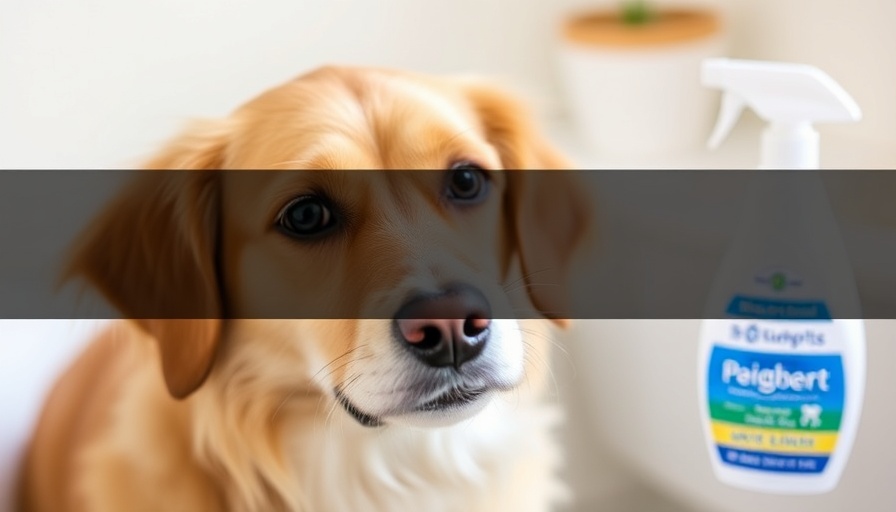
Understanding the Importance of Your Dog's Gut Health
Your dog’s gut health is crucial for their overall well-being, much like your own. Just as we depend on good bacteria for efficient digestion, pets also thrive on a balanced microbiome. However, many factors can disturb this balance, leading to unwanted tummy troubles for your furry friend.
Gut health in pets can be compromised by various elements: a poor diet, exposure to medications, stress from their environment, and even sudden changes in diet can lead to imbalances. Keeping this in mind, it is important for dog owners to recognize the significance of probiotics in promoting optimal digestive function.
The Role of Probiotics in Canine Health
Probiotics are defining heroes when it comes to your pet's gut health. Acting as live microorganisms, they help restore the good bacteria your dog needs to combat gastrointestinal (GI) disorders. Research shows that by reestablishing a healthy ratio of good and bad bacteria, probiotics contribute significantly to alleviating nausea and diarrhea, common issues many dogs face.
According to recent studies, specific strains such as Bifidobacterium lactis and Lactobacillus acidophilus have proven effective in enhancing digestion and nutrient absorption. As dog owners, knowing the types of probiotics that are best suited for your pet is essential. These strains vary in efficacy based on species, meaning a probiotic that benefits dogs may not have the same effect on cats, and vice versa.
Food Sources vs. Supplements: What’s Best for Your Dog?
You might wonder whether it's best to rely on food sources or supplements for your pet's probiotics. Incorporating natural foods laden with probiotics—like yogurt, kefir, or fermented vegetables—can be an enjoyable way for dogs to obtain beneficial bacteria. However, not all dogs will readily indulge in these foods. If your pet is picky about taste or texture, probiotic supplements come in various forms, including powders, liquids, and chewable treats, making them a fantastic alternative.
The Benefits of Variety: Different Strains for Different Needs
As each dog is unique, the probiotic strains they require can differ significantly. For example, strains such as Saccharomyces boulardii have shown great promise in combating diarrhea associated with antibiotics. Probiotics not only improve digestive health but also bolster the immune system, contributing to your dog’s ability to fend off illnesses.
Providing a diverse range of probiotic sources, whether through food or supplements, can rotate through various strains, giving your pet the ability to enjoy the full spectrum of gut-loving benefits.
Building a Healthy Lifestyle: Nutritious Diet and Stress Management
Besides providing probiotics, a well-rounded diet is essential for maintaining your dog’s gut health. Emphasizing whole, unprocessed foods alongside regular exercise can significantly improve your pet's gut biome. Additionally, reducing their exposure to stressors—like loud noises or sudden changes in routine—can also help maintain that necessary balance in their bacterial ecosystem.
Taking the First Step: What You Can Do Today
Now that you’re equipped with knowledge about your dog’s gut health, consider evaluating their current diet. Are you incorporating foods rich in probiotics? If not, integrating a few into their meals or exploring a high-quality probiotic supplement may be a step in the right direction toward better health.
For dog owners dedicated to nurturing their furry companions, it’s imperative to be proactive. Understanding what to feed your pet, how to introduce probiotics, and watching for signs of digestive distress are pivotal aspects of responsible ownership.
Final Thoughts: Proactive Parenting for Your Pet’s Health
Ultimately, being attentive to your dog’s gut health not only supports their well-being but also enhances their quality of life. Whether you are contemplating dietary changes or considering supplementation, proactive steps lead to happy, healthy pups.
Subscribe to our newsletter for more tips and insights on how to make informed decisions for the well-being of your beloved pet, ensuring they remain joyful, lively, and ready for life’s adventures.
 Add Row
Add Row  Add
Add 




Write A Comment